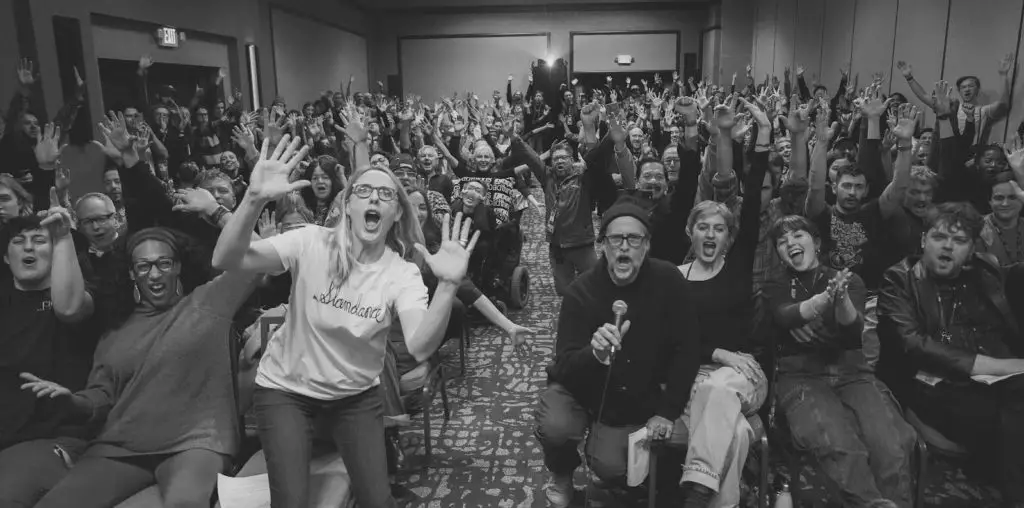
Although this short features yet another glimpse behind the curtain of the Hollywood industry we gratefully get to bear witness to a less serious account of the cutthroat world of studio life. Also, “Harry the Hamster” is unique in that it originates in the realm of the animation departments of Dreamland. Of course that doesn’t mean that the evil therein is any less evil, but it does help to make it funnier.
Director/Writer Tucker Marolf originates from the Chapman University Film School and shows a talent for crafting a humurous tale. The story itself is a very loose upbraiding of a major studio, and if you cannot figure which one then you should go directly to your local Blockbuster Video and begin renting alphabetically. He drives his story with a put-upon artist who has grand visions, only to see them usurped and commoditized. The tale of an avericious studio system is not unique, but some of Marolf’s methods are enjoyabe.
The focus of this morality tale is Kevin, a neglected animator at Wisney Studios who is never regarded as anything more than a drone for the corporate bottom line. Kevin has to contend with working under the venomous Harvey Fleisner, a vile man who is prone to spouting lines like, “I’m not going to throw that away like its’ some adopted Chinese baby!” Kevin toils with dreams of making important, socially conscious forms of entertainment, exactly the type spurned by Wisney.
Kevin’s best friend is Rich, a man who has dreams of getting into movies while being haunted with visions of his past life in South Africa. Rich often regales Kevin with harrowing tales of living under the oppression of Apartheid, and these nightmarish anectdotes inspire Kevin to write a screenplay that condemns that governmental insensitivity. The trouble is while pitching his script Kevin is constantly met with the reality of a Hollywood that does not care for causal forms of entertainment.
While picking up Kevin from his office one night Rich doubles back to grab a copy of the new script and scrawls the words “Harry the Happy Hamster” on the cover page and slides it under Fleisner’s office door. Within days the studio has the script on the fast-track to developement, but that track, Kevin soon finds out, is frought with speed bumps. Once the film is in production Fleisner comes to understand that the film is a message movie, which angers the executive enough to fire his animator and later invite him to a screening with the expectation of embarassing him in front of the audience.
However, in the maner of “The Producers”, the animated feature is a hit with the audience, all while Kevin is stunned to see that his treatise against global oppression has been reduced to children’s fare propaganda that encourages segregation of the races. By the end Kevin sits in his new sprawling office with a lode of trophies and commendations, as well as a mountain of guilt. The moral tale might be that as noble as your intentions may be do no rest your hopes on a studio—or an animated character—in keeping your vision pure.
Marolf shows a genuine capacity with staging comedy without resorting to ham-fisted delivery, and he learned well that subtlety plays much better. Here’s hoping his career doesn’t bend towards “Dude Where’s My Car?”.

